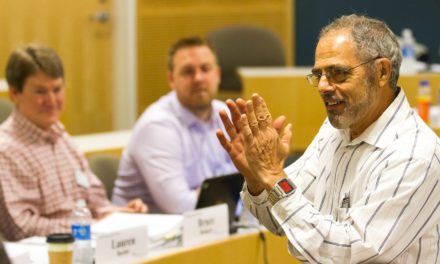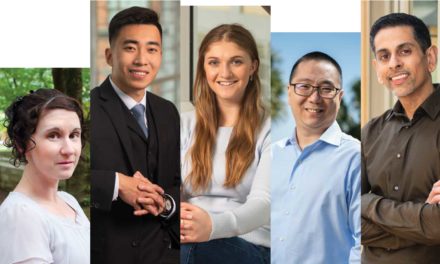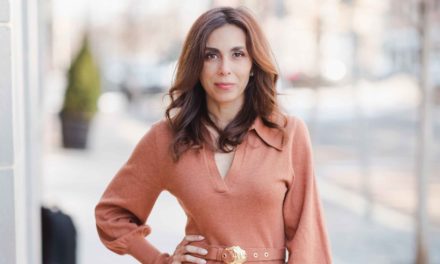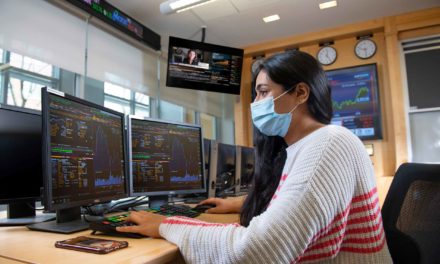How a team of Smeal students found the right combination of skill, confidence, and mutual respect to win seven case competitions
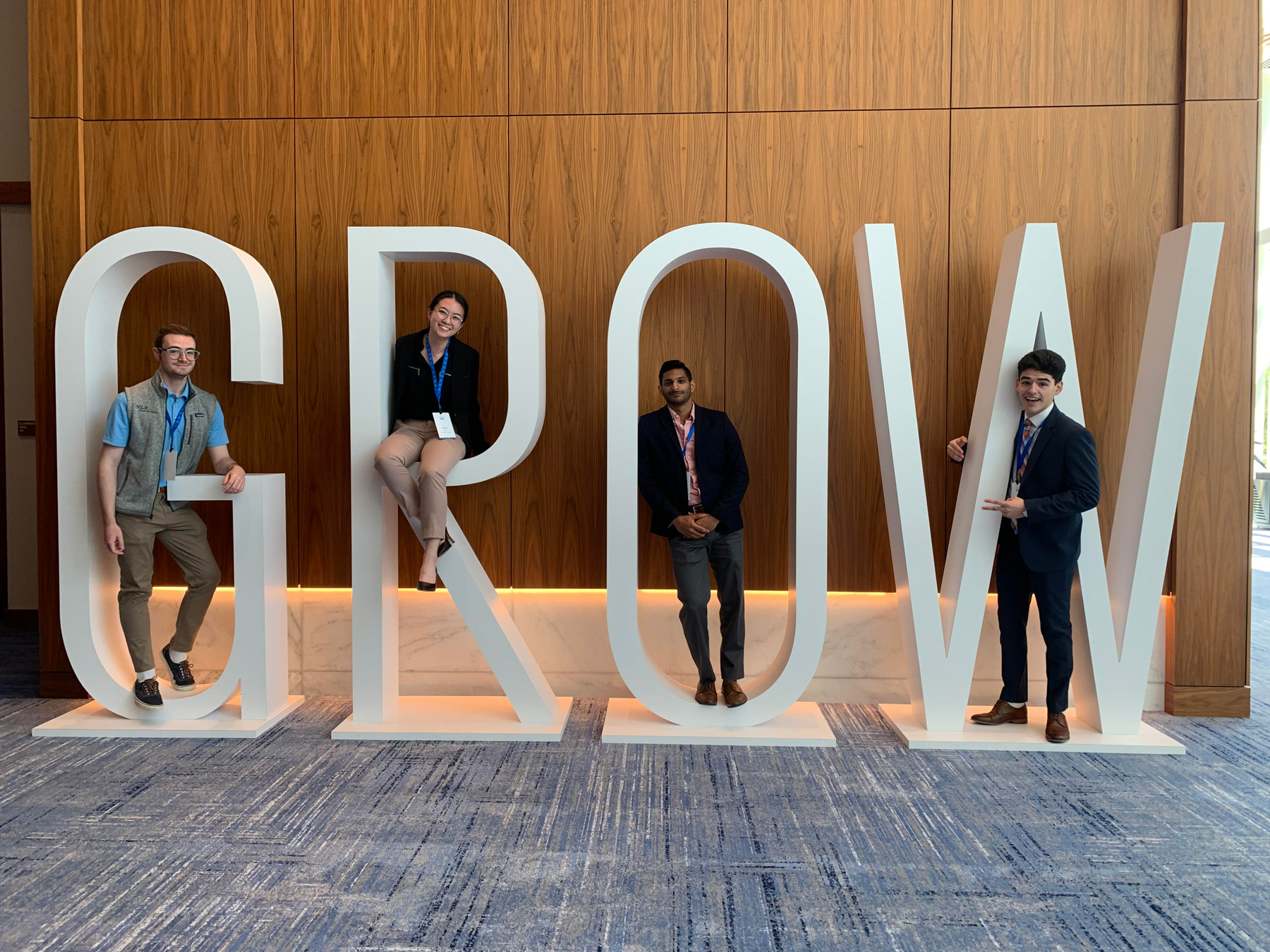
Students Sean Cullen ’23 Fin, Erica Mi ’23 IST, Haskel Canagarajah ’23 Fin, and Gabriel Rodriguez ’24 Acctg, MAcc
In the fall of 2019, four Penn State Smeal first-year students sat in a Nittany Consulting Group Consultant Training Program session when news of the PwC Challenge Case was announced.
Brimming with confidence and eager to learn, Chimwemwe “Michael” Mitole, Sean Cullen, Haskel Canagarajah, and Neil Patel banded together to enter the competition.
“We had a first-year degree of abandon,” Mitole recalls. “We were going to be as animated and lively a group as you’ve ever seen.”
Mitole, Canagarajah, and Patel were familiar with one another as part of that year’s Sapphire Leadership Academic Program cohort. Mitole and Cullen were friends at North Allegheny High School in suburban Pittsburgh.
“Our primary desire to compete was not necessarily to win, but to learn what it would take to win a case competition and to network with individuals that would aid in our understanding of the consulting space,” Canagarajah recalls.
“The decision on who to include was primarily driven by the fact that all of us were part of the same training program, so there was already a shared understanding that we were interested in similar career paths.”
The quartet surprised even themselves by winning the competition.
“The reception of our win was overwhelming,” Mitole says. “People had never heard of a freshman team eliminating 20-plus other teams and placing first in their first case competition experience, let alone a competition as renowned as PwC’s. Our improbable victory and the eager encouragement of our judges, who were senior partners at PwC, indicated to us that we had something special about us. We wanted to see the extent to which our success could go.”
Over the next three years, that core group would combine to win an additional six case competitions.
“We had loved the opportunity to collaborate with each other and think about big ideas,” Canagarajah says. “We further knew there was a click and that our individual strengths complemented each other.”
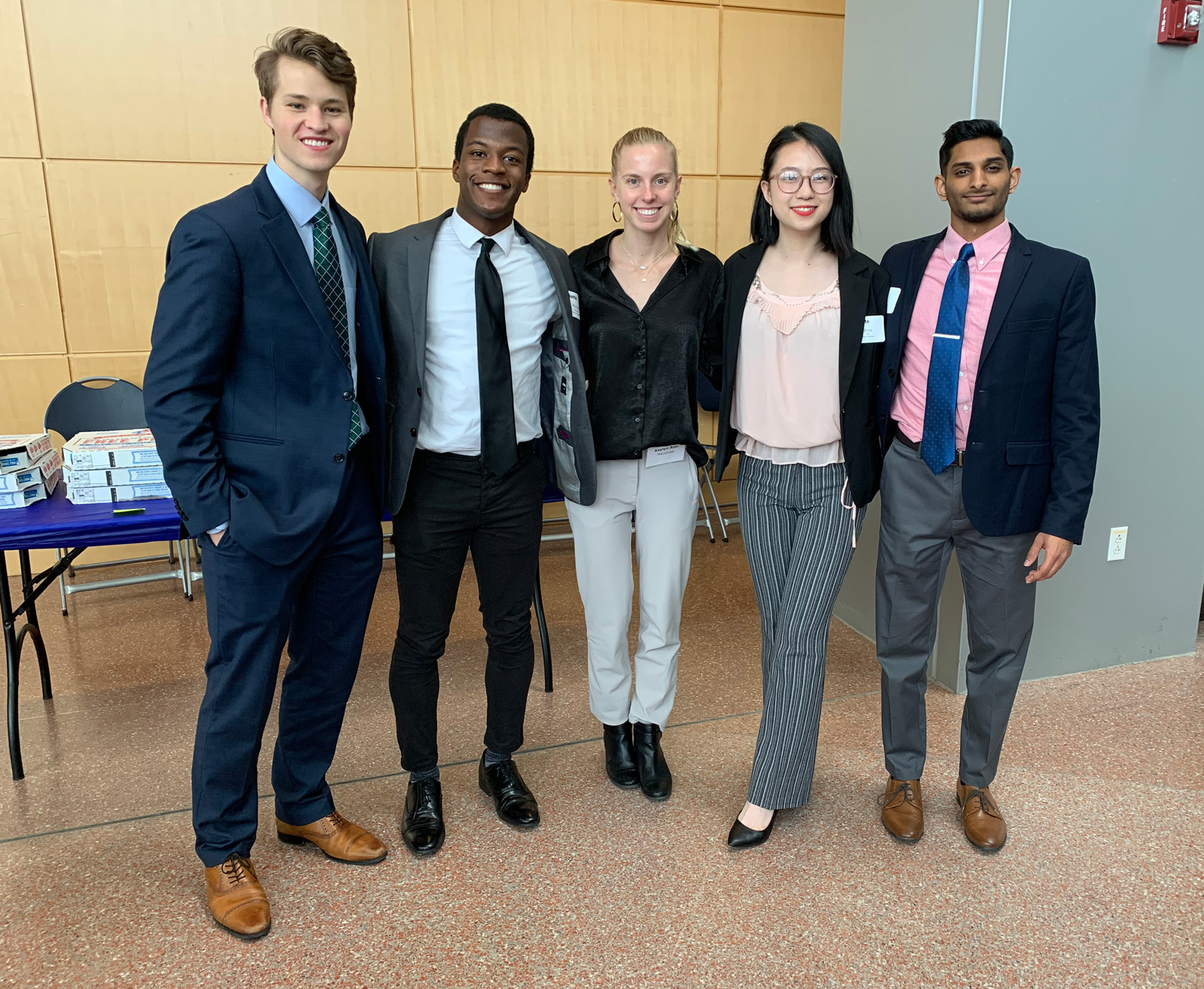
Adam Rhoad ’21 Fin, Michael Mitole ’23 Fin, Deloitte Advisor Kaylyn Macaluso, Erica Mi ’23 IST, and Haskel Canagarajah ’23 Fin at the 2020 Deloitte Undergraduate Case Competition.
Early on, the group would add Erica Mi, a friend of Canagarajah’s from State College Area High School who was enrolled in Penn State’s College of Information Sciences and Technology. Mi brought a STEM perspective to the team.
“Our team is diverse, and we all have different strengths, backgrounds, and interests to contribute to the team,” Mi says. “After working together for three years, we started to understand each other’s working styles and strengths. Ultimately, the camaraderie of going through these experiences helps with our team dynamic.”
That team dynamic was tested in the summer of 2021 when Patel was hospitalized and later died from COVID-19.
“Neil’s passing was devastating for the team as not only was he an integral part of the team’s ‘on-the-field’ success, but he was an important part of the team fabric by being one of the most caring friends that we all have had,” Canagarajah says.
“Beyond coming up with great ideas that we used in our presentations, he could always light up the room and make everyone laugh in the middle of an intense debate, which was key to all of us having fun in the midst of high-pressure situations. Ultimately, we knew we would never be able to truly replace someone like Neil or find someone like him, but to move forward we tried to find team members that brought in unique skill sets and a flexible mindset.”
Mitole said that Patel’s “wealth of experiences” in musical theater instilled in him a unique ability to present under pressure. He was the team’s go-to person to articulate complex answers.
“We never found a replacement for Neil. With Neil’s tragic passing, we took it upon ourselves to learn from his example and try to improve, within ourselves, the areas for which we so relied on Neil,” he says.
“Now, obviously, this also meant that for subsequent competitions we needed an additional person. So, while our core team has remained constant for every subsequent case (Sean, Erica, Haskel, and myself), we have found that we’re able to add many different kinds of people into our group dynamic and continue to see success. We’re proud of that.”
Gabriel Rodriguez was recruited to the team and helped it win its latest competition, the 2022 KPMG Ideation Challenge during the spring.
“We were very deliberate to build our team in such a way that every person’s strengths were not
conspicuously shared by another person.”
Early on, the core group recognized that the sum of equal but disparate parts created great potential.
“We were very deliberate to build our team in such a way that every person’s strengths were not conspicuously shared by another person. This forced us to trust each other. If that person who is tasked with doing something is the only ‘resident expert,’ you are forced to swallow your pride and believe that what they are doing is the best decision for the team,” Mitole says.
“Over time, though, each of us has grown to add many of the same skills, abilities, and approaches to our working styles. Still, fundamental differences in our perspectives remain – we all see things differently. That has been an important element for why our team has succeeded: the best ideas, out of all of us, must win the unilateral support of every opinionated member on the team. You can be sure that when consensus happens, it is because we’ve struck collective gold!”
It helps that each team member adds a unique skill set.
Canagarajah usually captains the group, helping organize efforts, ideas, and external communication.
Cullen adds expertise built through his involvement with the Nittany Lion Fund, Smeal’s student-managed hedge fund with more than $13 million in holdings.
Mi brings her STEM perspective and mastery of data analysis.
Mitole often seeds ideas and his dynamic personality helps in presentations.
Rodriguez offers an accounting framework.
As Mitole alludes, not every idea presented by a team member is met with universal approval. Great intellect is often paired with great confidence. If allowed to fester, that can sow seeds of division.
“With regard to disputes, that has been something that every newcomer to our team has been stunned by. They say, ‘I have never worked on a team that is this intense. How can you sustain these intense, spirited debates and arguments for hours and then carry on as collaborators after?’” Mitole said.
“Our answer is always the same: we all want the same outcome – to be successful. We also have formed norms: we hold each other to high standards, and we have enough interpersonal trust to say what we think – regardless of offense or disagreement. No conflict proves too insurmountable to be solved by dialogue.”
